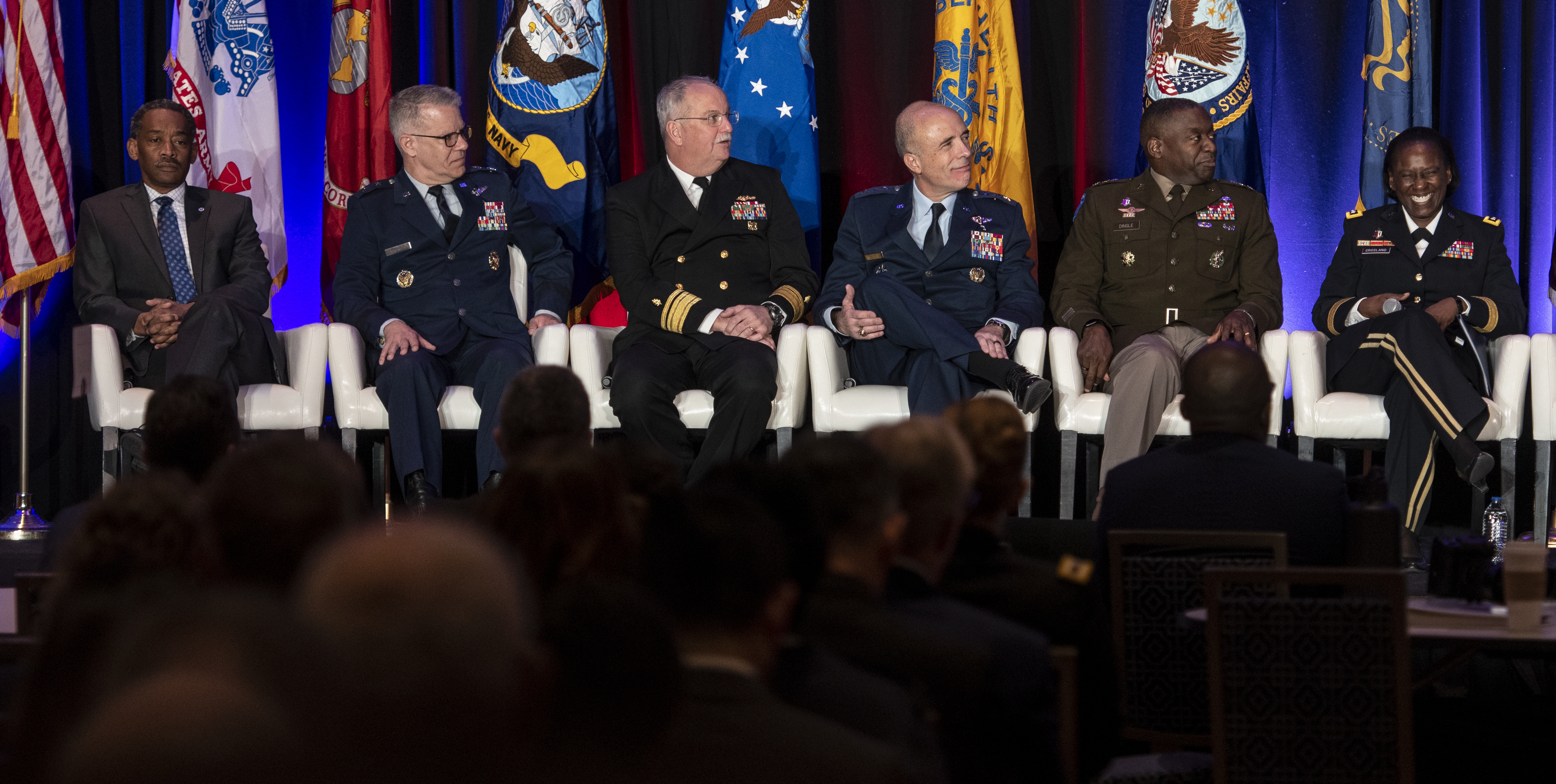
[ad_1]

MHS Leaders Focus on Readiness, Collaboration to Advance Military Health Care
Medical professionals from throughout the Military Health System, the federal authorities, and worldwide organizations met in National Harbor, Maryland, on the annual assembly of AMSUS, the Society of Federal Health Professionals, in February. At two plenary classes, MHS senior leaders spoke about their joint imaginative and prescient for the way forward for army well being.
Ms. Seileen Mullen, principal deputy assistant secretary of protection for well being affairs, moderated a panel on Feb. 13 that includes U.S. Army Lt. Gen. Telita Crosland, director of the Defense Health Agency; U.S. Army Surgeon General Lt. Gen. R. Scott Dingle, U.S. Air Force and U.S. Space Force Surgeon General Lt. Gen. Robert I. Miller; U.S. Navy Surgeon General Rear Adm. Bruce L. Gillingham; U.S. Air Force Maj. Gen. Paul Friedrichs, Joint Staff Surgeon; and Dr. Jonathon Woodson, President, Uniformed Services University of Health Sciences. On Feb. 16, Mullen moderated a panel comprised of Dingle, Gillingham, and Miller.
The audio system shared the importance and worth of the partnership between the DHA, Army Medicine, Navy Medicine, and the Air Force Medical Service.
“We must understand that the MHS is an ecosystem of interdependent organizations,” stated Dingle. “Just like an ecosystem, sometimes lines are blurred. But we must work together in order to survive. And that teamwork in an ecosystem is how we will be able to accomplish that.”
Woodson highlighted the significance of continued partnerships throughout the companies.
“There are both internal and external collaborations. Obviously, we want to link arms with the services and the Defense Health Agency to identify where we can be best supporting all of those activities in a complementary way,” stated Woodson. “It’s an evolving story.”
Leaders agreed that there are future alternatives for the MHS because it completes a interval of main transformation and emerges from the COVID-19 pandemic.
“We, as an organization, need to adopt a culture that embraces innovation in a disciplined way. My first step is to be able to see all the great things out there that are going on… [and] move us as an organization from the brick and mortar to a digitalized organization,” stated Crosland.
Friedrichs famous how entry to a wealth of knowledge might help forecast the longer term well being care wants of the army.
“One of the great strengths of the DHA and our joint trauma systems [that] we’ve now built is the greatest collection of military medical data in the history of mankind. That allows us to begin to understand and project in a variety of scenarios, what our casualties will look like, and how challenging it will be to care for them,” he stated. “We must have the courage to say with that data, here’s what the cost of war will be, so that our political leaders are able to make the most informed choice.”
With the DHA having assumed administration of all army hospitals and clinics, the service medical departments are forging a transparent path to assist the readiness of their medical forces.
Dingle, Gillingham, and Miller outlined how they’re getting ready their medical forces for the battlefield. Emphasizing the challenges of potential near-peer conflicts and the necessity for larger flexibility, the leaders known as for a medical pressure that may adapt to satisfy any problem, wherever on the earth.
“But I can tell you that everybody on this stage is committed to getting there, to where we need to be,” stated Gillingham. “When the team goes downrange, they’re ready to go. And we’re offering absolutely the best possible care that we can.”
“I think all of the surgeons on this day would concur that we exist for that readiness mission,” stated Miller, “It’s thanks to the support of the DHA looking back over the last 10 years. And it’s come a long way.”
[adinserter block=”4″]
[ad_2]
Source link